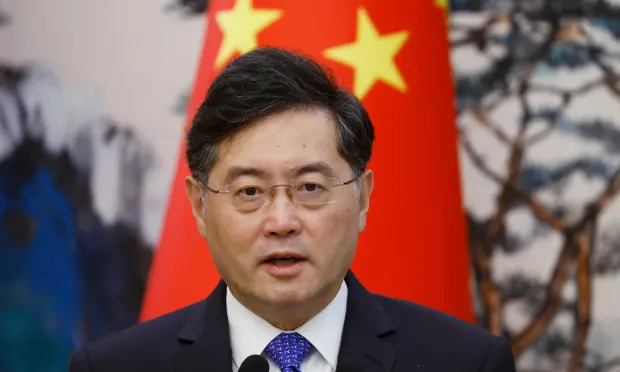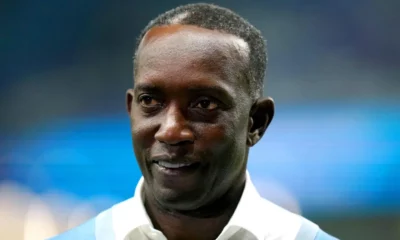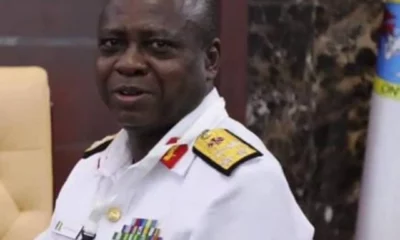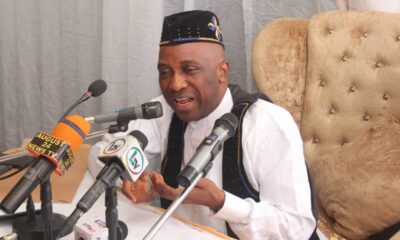

The dismissal of Qin Gang, a key Xi Jinping loyalist, from the post of Chinese foreign minister is shaping up to be one of the country’s biggest political scandals in years. Qin spent just seven months in the role, the shortest tenure of any to have served, and mysteriously disappeared from view last month. He was sacked on Tuesday, replaced with his predecessor Wang Yi, and is yet to reappear in public.
Political purgings – if that is what has happened to Qin – are not rare in China. Thousands of officials, including high-ranking political rivals of Xi, have been targeted by anti-corruption campaigns or shuffled out of view – sometimes literally, as in the case of the former president Hu Jintao, who was physically removed from his seat at a Communist party meeting in Beijing last year.
Qin was last seen at a meeting with foreign officials in Beijing on 25 June. Two weeks later, a Chinese foreign ministry spokesperson cited unspecified health reasons for Qin’s absence from an upcoming Asean meeting in Indonesia, and after that his absence was not mentioned again and questions from foreign reporters were dismissed.
Qin’s rise had been linked to his closeness to Xi. This week, the Washington Times quoted an unnamed Biden administration official as saying Qin was not liked by the Chinese foreign ministry. His appointment to the role was seen as a leapfrog ahead of other candidates, and analysts say a fall from grace would be highly embarrassing for Xi, whose judgment is not supposed to be questioned.
Despite Qin’s month-long absence, his dismissal and the appointment of Wang in his place appear rushed. The meeting by the standing committee that decides cabinet changes was announced with just one day’s notice, and there are signs that Wang’s return is only temporary.
“The saga is not done,” said Wen-ti Sung, a political analyst at the Australian National University’s Australian Centre on China in the World. “It certainly smells like a temporary arrangement to end further embarrassment [caused by] tasking Wang Yi with … meeting foreign counterparts when he lacks the title as foreign minister.”
Qin was born in the north-eastern city of Tianjin in 1966 and is married with a son, according to public biographies. He has been a member of the Communist party since 1998, joining in the early stages of his career when he was working at the embassy in the UK, the first of three postings to the country.
Between 2006 and 2014, he made a name for himself as one of China’s self-styled “wolf warrior” diplomats during two stints as a ministry spokesperson. In a profile for Foreign Policy magazine, Melinda Liu wrote: “Those of us in the press corps who have known Qin for years have seen a deft, wily player … who knows how to bend with the prevailing wind from Beijing.”
Qin Gang and Antony Blinken
Qin and Antony Blinken, the US secretary of state, the week before Qin disappeared. Photograph: UPI/Shutterstock
From 2011 to 2018, Qin was director of the foreign ministry’s information department and then its protocol department, where he is thought to have grown close to Xi as an aide organising the leader’s trips and accompanying him. Qin spent a few years as assistant minister and then vice-minister of foreign affairs, then in mid-2021 he was given his highest-profile role yet, ambassador to the US.
Six months after the end of the Trump presidency, still deep in the pandemic and amid ongoing tit-for-tat sanctions, relations with Washington were at a low. Qin appeared determined to repair the US-China relationship, which he said was China’s most important. Asked what his mission was as ambassador, he replied: “Don’t mess it up.”
During his 17 months in the role, Qin – whose experience was in western Europe relations more than American – built on his wolf warrior reputation. In his first interview, he accused Taiwan’s government of seeking independence, warning it would probably lead to a US-China military conflict, and he defended the crackdown on Uyghurs in Xinjiang.
Qin’s access was reportedly limited to only a few high-ranking US figures, according to Politico, so he pivoted to lower levels of government, travelling around the country. “The story from the embassy even as recently as early [2022] was that Qin Gang wasn’t being seen by US officials and he was therefore spending time at the sub-national level … going to visit mayors and governors,” Bonnie Glaser, the Asia programme director at the US-based German Marshall Fund, told Politico in November.
If the US government had been freezing out Qin – a claim the White House has denied – it was perhaps regretted when he was prematurely pulled from the ambassadorship and promoted to the CCP state council and then appointed foreign minister in December. In one of his first statements as foreign minister, he described US-China relations as a “zero-sum game where you die and I live”.
In China’s system of government, the foreign minister is a policy implementer, not a policy designer, but is still a highly visible and internationally focused role. In his first six months, Qin toured the post-pandemic world and hosted a slew of foreign dignitaries and officials in Beijing. He was front and centre defending China during the spy balloon saga, and pushed for China to be seen as a potential peacemaker in the Russia-Ukraine war.
Qin remains on the state council for now, which has only fuelled further speculation. Rumours have included a power struggle with Wang, a political blunder during or around a meeting with the US secretary of state, Antony Blinken, the week before Qin disappeared, or being compromised by foreign intelligence services.
There have been allegations of an affair with a TV anchor who has also not been seen in public since she posted a tweet including a photo of herself interviewing Qin on 11 April, but analysts say an affair would not normally trigger a political purging on its own.
No investigation has been announced and it is still possible Qin’s disappearance is health-related or that he is being sidelined into insignificance, like another former former foreign ministry spokesperson, Zhao Lijian.
“But there are indications that Qin is in a lot more trouble than that,” James Palmer, the Foreign Policy editor, wrote on Wednesday, noting the scrubbing of references to Qin from government websites. “The suddenness of Qin’s removal – even if normal in a political system like China’s – may indicate that he was swept into shuanggui, China’s extrajudicial interrogation system for CCP members who are deemed politically suspect.”
Must See
-
Other Sports
/ 4 months agoTransfer: Galatasaray target January move for Onyedika
Turkish Super Lig champions Galatasaray are lining up a January move for Club Brugge...
By Amaka Esther -




Other Sports
/ 4 months agoMan Utd too big for you – Ten Hag told to leave club
Former Tottenham Hotspur star, Darren Bent has claimed that Manchester United are too big...
By Amaka Esther -




Other Sports
/ 4 months agoEPL: Yorke tells Ten Hag not to allow Man Utd star near first team
Manchester United legend Dwight Yorke has told manager Erik ten Hag not to allow...
By Amaka Esther








